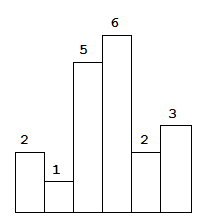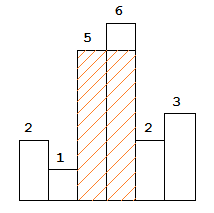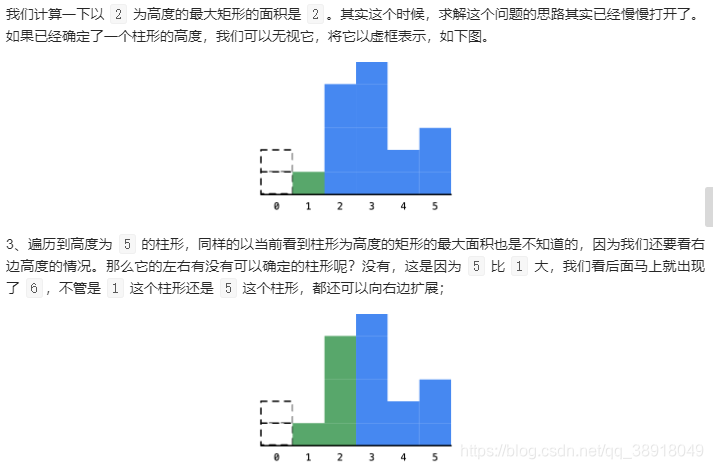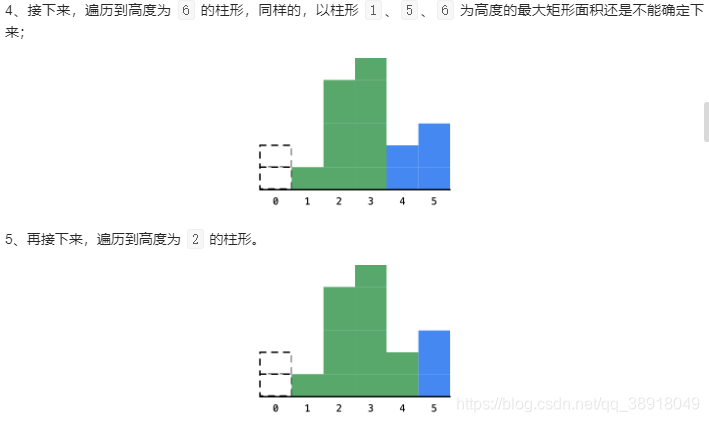给定 n 个非负整数,用来表示柱状图中各个柱子的高度。每个柱子彼此相邻,且宽度为 1 。
求在该柱状图中,能够勾勒出来的矩形的最大面积。
以上是柱状图的示例,其中每个柱子的宽度为 1,给定的高度为 [2,1,5,6,2,3]。
图中阴影部分为所能勾勒出的最大矩形面积,其面积为 10 个单位。
示例:
输入: [2,1,5,6,2,3]
输出: 10
法一:暴力
左边看一下,看最多能向左延伸多长,找到大于等于当前柱形高度的最左边元素的下标;
右边看一下,看最多能向右延伸多长;找到大于等于当前柱形高度的最右边元素的下标。
对于每一个位置,我们都这样操作,得到一个矩形面积,求出它们的最大值。
public class Solution {
public int largestRectangleArea(int[] heights) {
int len = heights.length;
if (len == 0) return 0;
int res = 0;
for (int i = 0; i < len; i++) {
int left = i;
int curHeight = heights[i];
while (left > 0 && heights[left - 1] >= curHeight) {
left--;
}
int right = i;
while (right < len - 1 && heights[right + 1] >= curHeight) {
right++;
}
int width = right - left + 1;
res = Math.max(res, width * curHeight);
}
return res;
}
}
法二:栈
public class Solution {
public int largestRectangleArea(int[] heights) {
int len = heights.length;
Stack<Integer> s = new Stack<>();
int maxArea = 0;
for (int i = 0; i <= len; i++){
int h = (i == len ? 0 : heights[i]);
if (s.isEmpty() || h >= heights[s.peek()]) {
s.push(i);
} else {
int tp = s.pop();
maxArea = Math.max(maxArea, heights[tp] * (s.isEmpty() ? i : i - 1 - s.peek()));
i--;
}
}
return maxArea;
}
}
就这样一直消






